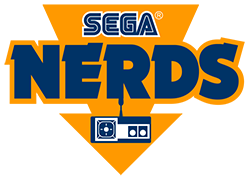
Welcome to another entry of Forgotten Racers of SEGA’s Past! I apologize for the long break, I have been bombarded with work for the past couple of weeks and haven’t had any time. But now I do, so let’s stomp the gas and hit the track once again!
Now, this week and next I’m going to be taking a look at two of my favorite racers released on the Genesis: Lotus Turbo Challenge, and its sequel, Lotus II : RECS (Racing Environment Construction Set). You readers can think of this as a retrospective of sorts. And here we go!
 Now, if you had a gaming computer back in the day (1990-1992 specifically), you probably know of the amazing Lotus trilogy for the Commodore Amiga and other assorted computers of the time. But did you know two games out of the three were ported to the Genesis/Mega Drive? By EA of all companies.
Now, if you had a gaming computer back in the day (1990-1992 specifically), you probably know of the amazing Lotus trilogy for the Commodore Amiga and other assorted computers of the time. But did you know two games out of the three were ported to the Genesis/Mega Drive? By EA of all companies.
Lotus Turbo Challenge was released in 1992 and developed by Gremlin Graphics Software LTD, with Electronic Arts handling publishing duties. It’s essentially a port of Lotus Turbo Challenge 2, which was released in 1991 for the Commodore Amiga and Atari ST. A damn-fine port at that. Lotus was a great game on PCs, but how would it fare on 16-bit consoles of the time?
Electronic Arts bought the rights from Gremlin to make a port for the Genesis/Mega Drive, and it turned out great. When I hear or see people discussing Genesis racers, I usually never hear this one get mentioned. It’s understandable, as Road Rash II was released around the same time and more people were paying attention to that. Lotus Turbo Challenge is a very good Genesis racer that gets overlooked a lot.
Starting with gameplay, Lotus Turbo Challenge is your basic arcade racer: you pass cars, hit checkpoints and get to the end of the course. Its simplicity at its fine, but there are a couple of added features to keep the game feeling fresh.
Like its gameplay, the premise of Turbo Challenge is rather simple: you race a circuit made up of eight different courses and attempt to win the championship at the end. Along your way, you race two different cars, the Lotus Espirit and the Lotus Elan SE, which was fairly new at the time. The car depends on which number of course you’re on, the Espirit is for even numbered stages and the Elan is for odd numbered. Pretty cool concept if you ask me.
 The eight courses you race on are divided into different environments: Forest, night, fog, snow, desert, motorway, marsh and storm. As you can tell by some of the course names, weather plays a big part in this game, and it’s one of Lotus’s main challenges and main innovations.
The eight courses you race on are divided into different environments: Forest, night, fog, snow, desert, motorway, marsh and storm. As you can tell by some of the course names, weather plays a big part in this game, and it’s one of Lotus’s main challenges and main innovations.
Another difference is obstacles in the road, which there is a lot of. The handling is great, and it almost feels real at times, with the right amount of oversteer and understeer. If one thing stands out about Lotus Turbo Challenge, it’s the car handling, which is more or less perfect. There is also a two-player mode that is pretty fun, as well.
Graphically, Lotus looks amazing, sporting a smooth framerate, great road design and big sprites for the cars and roadside objects. The environments and weather effects look awesome, as well.
Oh, did I mention there’s a two-player mode, as well? Surprisingly, the game runs pretty well in two-player mode, which is shocking since there’s so much detail to split up into two screens.
 Somewhat disappointingly, music is pretty much nonexistent in this version, minus Barry Leitch’s awesome title music from Lotus Turbo Challenge 2 in Genesis form, which sounds great. With the exception of a couple of jingles for winning and losing races and beating the game, there’s not much to listen to.
Somewhat disappointingly, music is pretty much nonexistent in this version, minus Barry Leitch’s awesome title music from Lotus Turbo Challenge 2 in Genesis form, which sounds great. With the exception of a couple of jingles for winning and losing races and beating the game, there’s not much to listen to.
On a positive note, the audio of the cars is pretty well done. There are also some voice clips used from the PC game, that are surprisingly clear, which is impressive considering this is kind of early in the Genesis lifespan. Audibly, Lotus doesn’t do anything spectacular, but what’s there is pretty good.
All in all, Lotus Turbo Challenge is one of the best Genesis racers I’ve played. It plays great, looks great and sounds great, which isn’t what you’d expect from a licensed racing game with real cars. I consider it somewhat of a sleeper hit but an amazing one at that. What’s best is it isn’t very expensive either, I found my copy pretty much brand new complete in box for about $5.
If you’re on the hunt for a great racing game for the Genesis, give Lotus Turbo Challenge a shot. It’s definitely worth it.
As usual, leave your opinions and comments, and let me know if there are any underrated and overlooked racers you what featured in a future Forgotten Racers article. Stay tuned for the next article, when I take a look at Lotus II RECS, Turbo Challenge’s sequel. I’ll see you next time!






